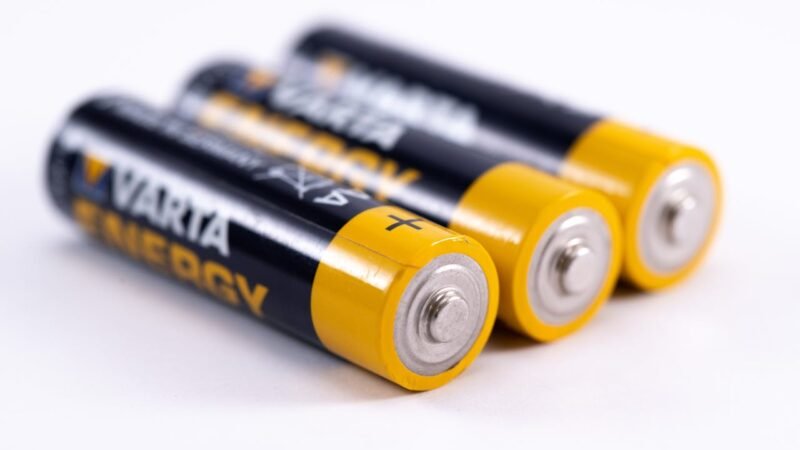Harnessing the Power of the Sun: A Deep Dive into Solar Panel Technology

Solar energy has proven itself as one of the most promising sustainable energy solutions, making a bold statement about climate change and fossil fuel depletion. Solar Panel Installer converts sunlight directly to usable electricity that can power homes and commercial properties all across North America. Solar installation professionals help homeowners make informed decisions that have long-lasting positive results on energy consumption as well as protect our planet by offering expertise regarding technology, installation, and potential benefits – helping make solar the right decision that has an effect and an eco-friendly effect.
The Basics of Solar Panel Technology
At its core, solar energy consists of photovoltaic (PV) power that turns sunlight into electricity. Solar panels consist of numerous photoelectric cells made of silicon that absorb sun rays while emitting free electrons, which are captured and passed along a circuit, creating electricity in their path.
Monocrystalline and polycrystalline panels can be divided into two main categories of solar panels: single crystal films tend to be more efficient due to being composed entirely of silicon crystal, while polycrystal films contain multiple fragments composed of multiple different silicon crystals – though single crystal films typically cost less as they use only pure silicon crystal and do not cost extra in comparison with polycrystalline panels; each homeowner will decide for themselves which option meets their budget needs best.
Thin solar cells, an emerging technology, are lighter and more flexible compared to their silicon-based counterparts. While thin-film devices don’t deliver as high an efficiency rate, they tend to cost less while being applicable in areas that may otherwise not support conventional films.
Solar Energy Benefits
The benefits of solar power extend both environmentally and personally; among its greatest advantages is reduced greenhouse gas emissions compared to fossil fuels such as coal. Furthermore, by investing in solar panels as energy solutions, homeowners help lessen climate change effects by decreasing their reliance on nonrenewable sources such as coal or natural gas, which produce carbon dioxide or other pollutant emissions that pollute air quality.
Solar panel installations also help homeowners attain energy independence, by giving them control of their electricity production and protecting against fluctuating electricity prices. When excess power has been produced by installing solar panels on homes, an excess can often be sold back through net metering to help lower utility costs while providing homeowners with additional income sources.
Pennsylvania home Solar installers specialists provide valuable expertise here by designing systems while fulfilling any necessary permits, inspections, or regulatory requirements that might apply for installation based on local regulations.
Solar panels require less maintenance. Once installed, their lifespan typically ranges between 25 and 30 years, with most systems only needing occasional inspection or cleaning services to stay operational. Furthermore, this long-term investment could yield substantial energy cost savings that last decades!
Solar Panel Installation Process
Installation of solar panels involves several steps that begin by assessing both energy needs in your house and whether your property can accommodate solar. Factors like roof size and slope, shade from nearby trees/buildings/weather, and all weather conditions play into how effective a system will perform in terms of cost-savings for you and the planet as a whole.
Professional installers will then utilize this information to customize a system according to a homeowner’s specific needs and tailor it specifically.
Once the design process is completed, the physical installation of the solar energy system begins. Solar panels usually go onto roofs, but floor-mounted options may also be suitable depending on available open spaces. Each solar panel connects to an inverter that converts direct current (DC) electricity generated from panels into alternating current (AC), making usable electricity in your home environment and then connecting all systems with existing electric grids and infrastructure.
Once completed, homeowners can immediately start reaping the rewards of clean and renewable energy sources. Installation typically takes several days depending on system size and complexity, but once complete, homeowners can immediately begin reaping its many advantages.
Solar Energy and the Environment
The environmental benefits of solar power are many, from reduced fossil fuel usage to decreased emission of carbon dioxide and other air pollution pollutants; which in turn keeps both air and water cleaner while helping slow global warming trends.
Solar energy also conserves natural resources. Traditional electricity generation methods, like coal and natural gas generation, require large volumes of water for cooling and processing purposes – while solar panels use minimal or no water resources, making them an environmentally friendly solution in places where conserving resources is crucial.
Additionally, solar panels deliver energy without noise pollution – unlike wind turbines or fossil fuel plants, which operate loudly – making solar systems ideal for residential areas.
Financial Considerations
While solar can bring many environmental and financial advantages for homeowners, its financial benefits should not be overlooked either. Solar panels have seen dramatic price reductions in recent years, making them affordable to any home. Plus, there are federal, state, and local incentives that help offset installation costs; one such initiative allows taxpayers to deduct a percentage of installation costs from taxes through an ITC deduction. These factors all combine for greater financial relief for all involved.
Pennsylvania offers additional incentives to homeowners considering solar. Net metering enables households to sell excess electricity back into the grid at retail rates; this feature helps significantly decrease monthly energy costs for solar panel installations while increasing returns on investments.
Of course, the total cost of installing a solar panel system varies widely based on factors like the size and composition of devices being utilized as well as installation complexity – thus, homeowners must obtain multiple Solar Cost Estimates before selecting their best options as investments.
Conclusion
Solar energy can bring many advantages for homeowners, the environment,t and economies alike. By harnessing solar power through solar panel technology, harnessing this clean source can bring hugely beneficial results for everyone involved – including homeowners themselves! Solar power has become an increasingly viable alternative for those hoping to lower their carbon emissions and achieve energy independence, whether for environmental considerations, reducing finances through conservation measures, or seeking self-sufficiency in terms of energy independence. An investment in solar panels could pay dividends over decades. By working with an established solar installer like Pennsylvania experts, homeowners can navigate the installation process more smoothly and see an increased return on their investment. Solar power represents the future of the energy revolution.





